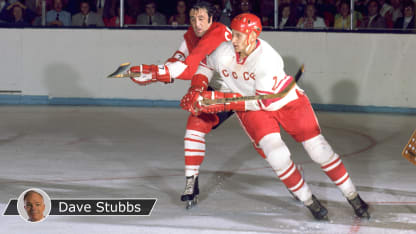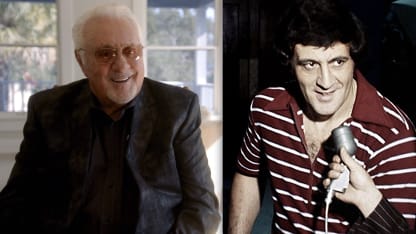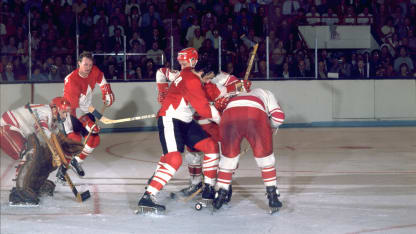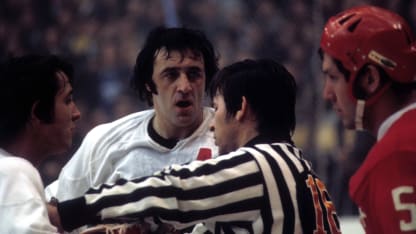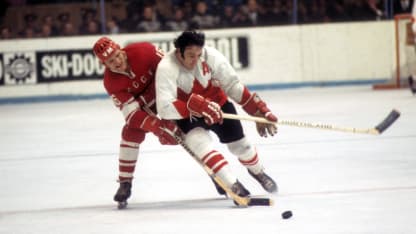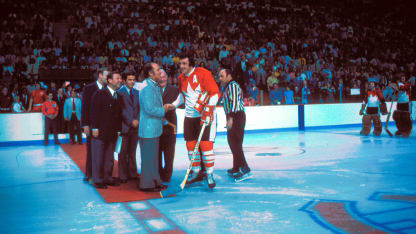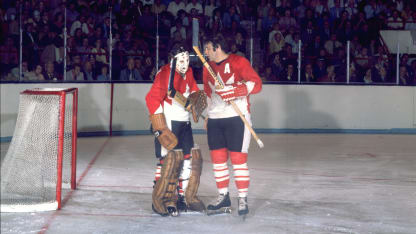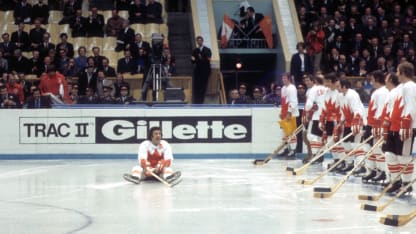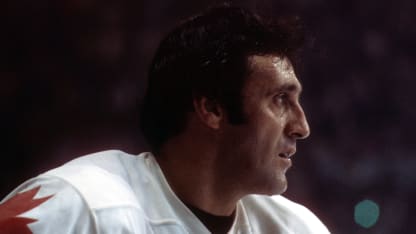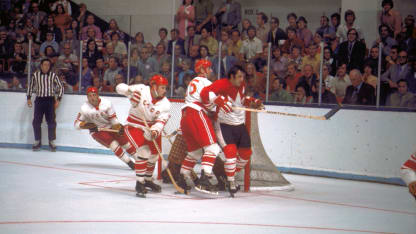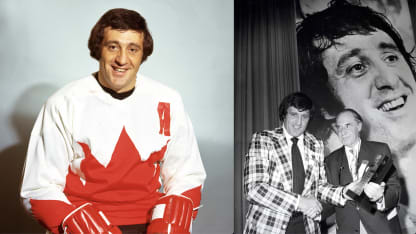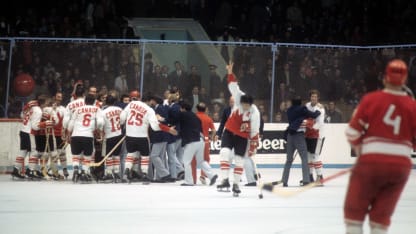Phil Esposito was indisputably Canada's best player in the 1972 Summit Series, its heart and soul during the eight-game tournament against the Russians. Melchior DiGiacomo, Getty Images
The series result wouldn't have been as close, Esposito insists, had this truly been Team Canada, and not in fact Team NHL. Players had to be under NHL contracts to be considered for the roster, thus excluding forward Bobby Hull, who had just signed with the Winnipeg Jets in the fledgling World Hockey Association, and goalie Gerry Cheevers, who had signed with the Cleveland Crusaders.
Bruins superstar defenseman Bobby Orr was considered but was unfit to play following surgery on his left knee and a lack of training. Brilliant forward Gordie Howe was entering the second year of a two-year retirement before his comeback in the WHA with the Houston Aeros.
"Our problem was preparation," Esposito admitted, "and terrible scouting of the Russians. Game 1, it was 93 degrees in the Forum, no air-conditioning, there was fog on the ice. We were shot.
"People have said to me, 'How could you not be prepared?' and I reply, 'Very easily.' We didn't know anything about the Russians, how fit they were, how they played. Nowadays, you'd have video and all that. But back then, come on. …
"We might have lost Game 1 no matter what, but if we'd had Bobby Orr, or Bobby Hull, or even Gordie. Imagine Gordie after Game 1. He'd have had steam coming out of [his] nostrils and that would have been it.
"I believe that we could have played the Russians another five or six times that series and not lost another game. I feel that, I do. I've said that to my friend Yakky (Russian forward Alexander Yakushev) and Boris Mikhailov and they disagree, but I say to them, 'It doesn't matter, we won. I can say what I want, you can say what you want.'"
